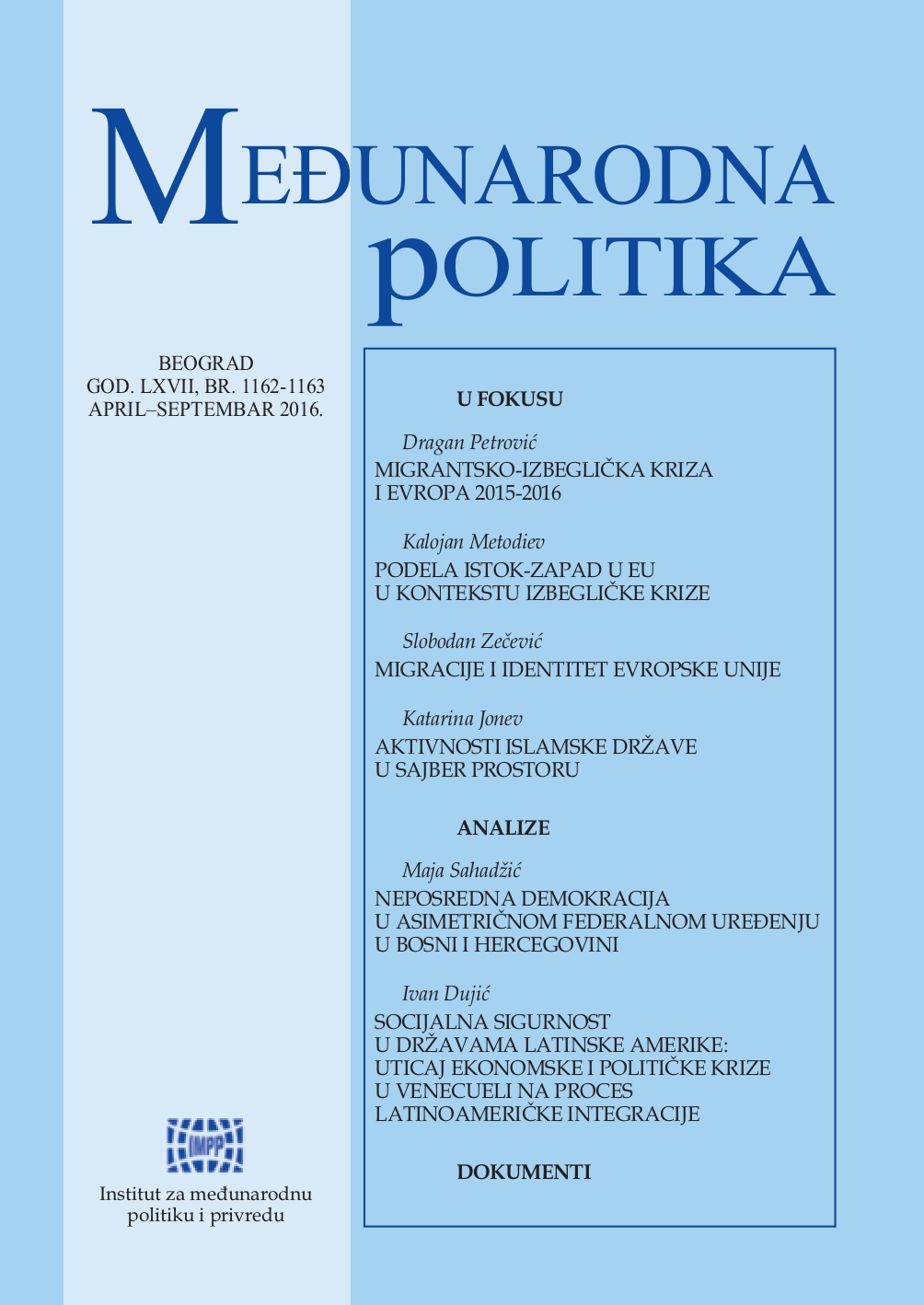Period tranzicije i ekonomske reforme
u državama Višegradske grupe
Period of transition and economic reforms in the states of Višegrad group
Author(s): Aleksandar JazićSubject(s): Economic policy
Published by: Институт за међународну политику и привреду
Keywords: economy; finance; sustainable development; transition; Visegrad Group
Summary/Abstract: The end of the Cold War and the beginning of the transition process has forced many countries to find a new form of regulation of its economic system. Some countries have decided to join forces and form a regional initiative to help achieve common goals. This is an example with the Visegrad group, which consists of the former Eastern Bloc countries - Poland, the Czech Republic, Slovakia and Hungary. Immediately after the start of the transition process, all these countries defined their economic, political and foreign policy goals. Given the almost identical recent history and defined goals, officials of these countries have decided to join their efforts in order to achieve its plans. The result was the formation of the Visegrad Group, which, in addition to the political and foreign policy character, has an economic character in terms of economic convergence and economic entities of the Member States. The main economic objective of this initiative is an attempt to preserve as much as possible and strengthen the economies of its member states to individually or collectively could compete with Western European business entities. This is the key element that influences on the preservation of the stability of markets and financial systems of the Visegrad Group Member States.
Journal: Међународнa пoлитика
- Issue Year: 67/2016
- Issue No: 1163
- Page Range: 116-133
- Page Count: 18
- Language: Serbian

